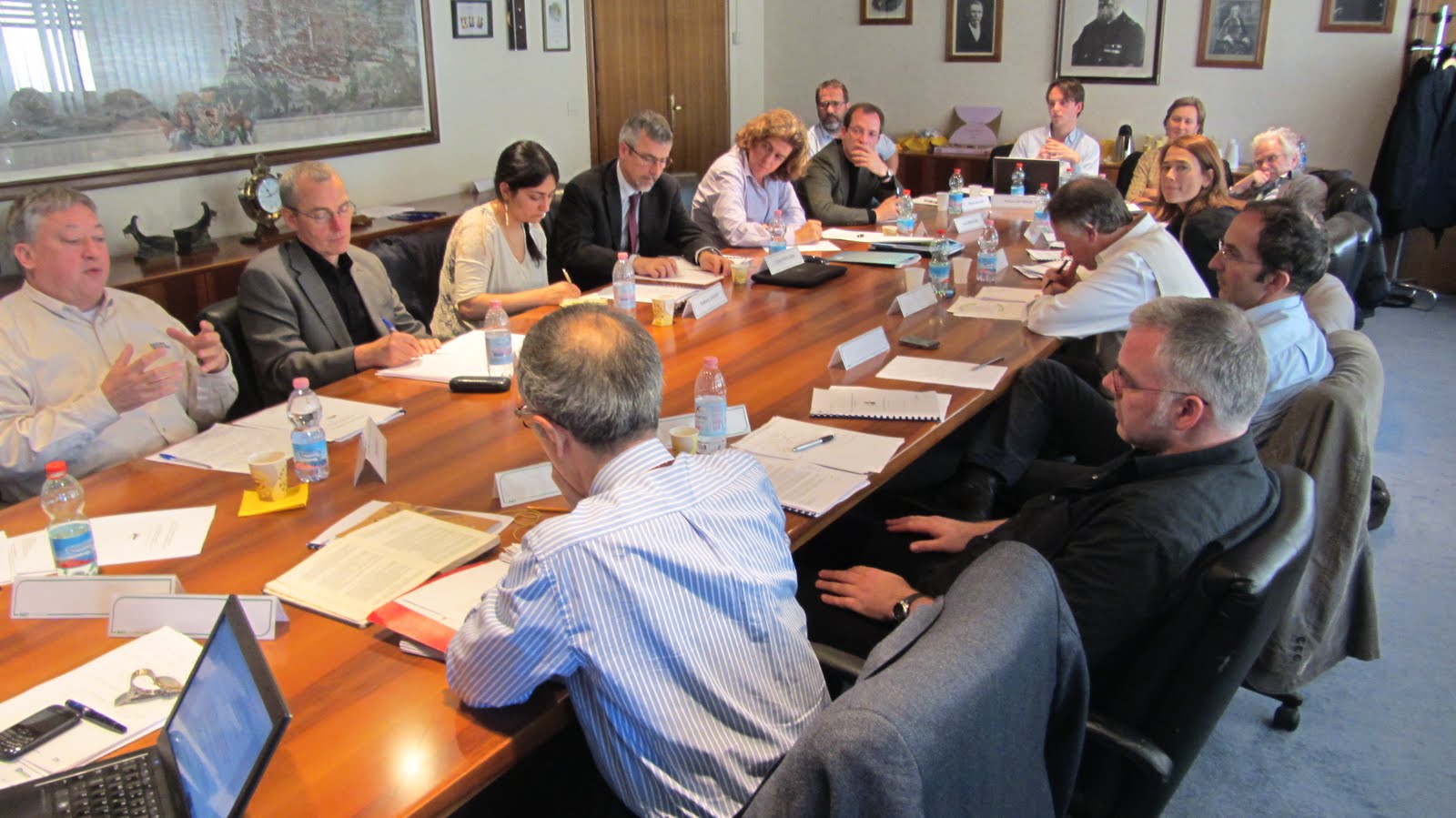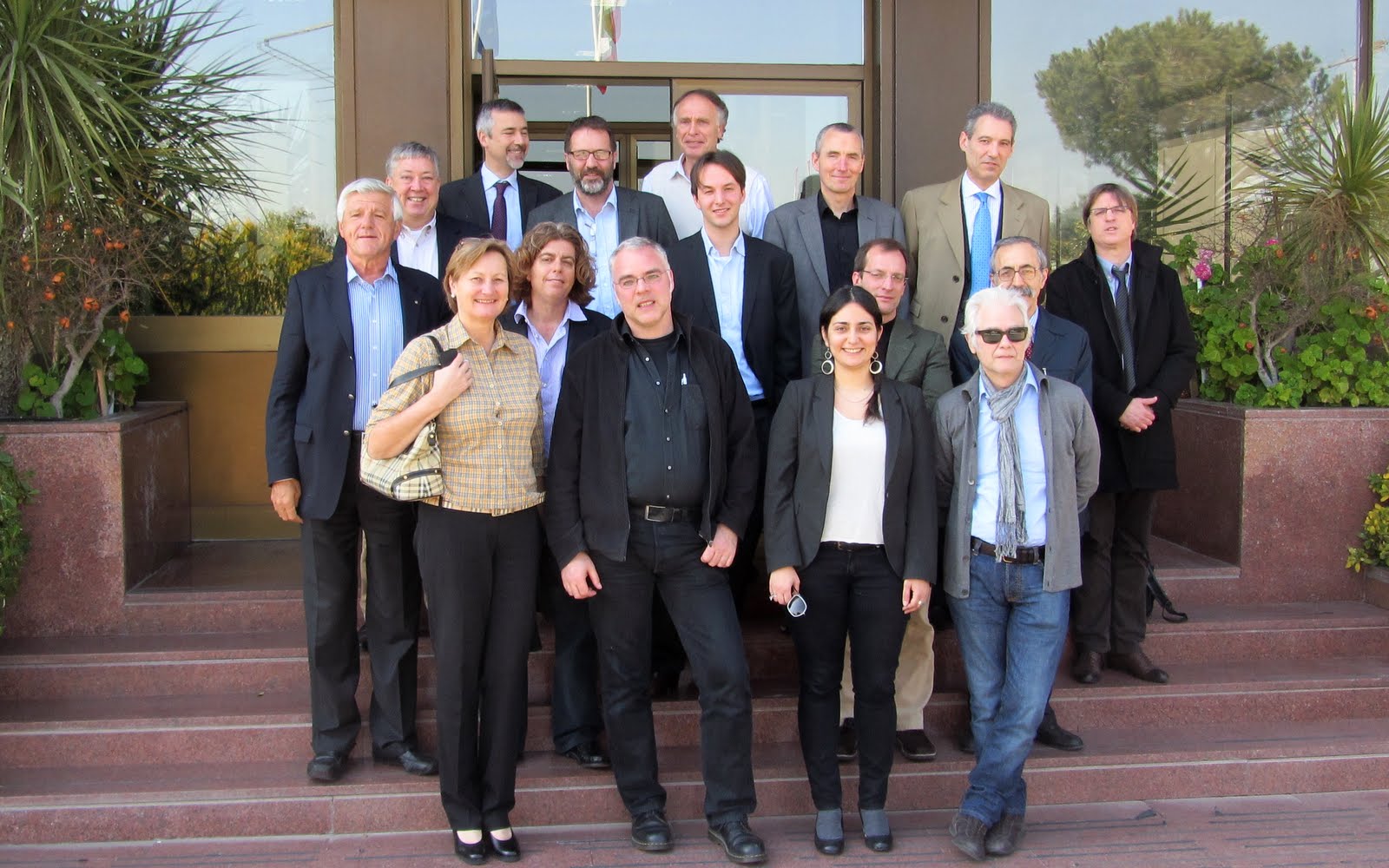 Making Research count in Marine Governance - A CIESM international seminar Making Research count in Marine Governance - A CIESM international seminar
15 March 2012, CIESM News
|
Some twenty experts in marine research, journalism, social media, science festivals, and research-policy interface did meet on 15 March 2012 at the invitation of CIESM at the edge of Rome, on the beautiful INSEAN/ CNR research grounds, for an exploratory seminar entitled 'Innovative communication approaches - How to make research count in marine governance'.
The exploration and exploitation of marine resources (biological and mineral) are posing unprecedented challenges worldwide, with fishing stocks on the verge of collapse, increasing clashes between the interests of the maritime industries and the preservation of marine biodiversity, or with the lack of agreement over the issues of access and benefit sharing (ABS) linked to blue biotechnology. Part of the problem lies in conflicting interests of the multiple users (e.g., maritime industries, fishermen, coastal tourism, wind farms, blue biotechnologies, conservation ...), but not only. Another difficulty is that the marine research sector is not much heard or understood beyond the ivory tower.
|

Photo credit: Peter Rebernik
The seminar participants listening to an intervention by David Braun, Chief Editor of Digital Daily News at National Geographic; clockwise from him Anders Hansen, prof. of environmental communication at Univ of Leicester; Eleftheria Lekakis, Goldsmith College, Univ. London; Fabio Trincardi, Director of ISMAR/CNR, Venice; Joaquin Tintoré, Dpt of Marine Technologies at IMEDEA and head of SOCIB, Palma de Mallorca; Vilhelm Skjaerpe, head of Mediafar A.S., Stavenger; Mario Sprovieri, prof. of oceanography at Univ. of Palermo; Willem De Moor and Kathrine Angell-Hansen, both from JPI Oceans based in Brussels, Konstantinos Stergiou, prof. of fisheries resources at Aristotle Univ., Thessaloniki; Laura Giuliano and Frederic Briand, both from CIESM Headquarters; Daniele Dessi, chief scientist at CNR/INSEAN which hosted the seminar; Henk Mulder, coordinator of the Science Shop at the Univ. of Groningen, and Tullio Scovazzi (with his back to the camera), prof of international law at the Univ. of Milano. Missing from the picture are Peter Rebernik, executive director of the European Science Event Association based in Vienna and Gilles Lericolais, new director of European and International Affairs at Ifremer, Paris, who are found respectively on the left and on the right of the third row in picture below, as well as Mario Dogliani, manager of corporate R&D at Rina, Genoa (right of fourth row).
|
This seminar, moderated by Frederic Briand, examined, inter alia, challenging questions such as : How could researchers 'break the mirror' and impact both the decision-making process and the legal systems overseeing the management of large expanses of ocean? How could scientists be more effective in collaborating with public media ? Are certain communication vectors better suited than others to translate the complexity of marine ecosystems into options readily understandable to maritime stakeholders, to relevant clusters of power, and to society at large?
• See Report:
Briand F., 2012. Making research count in marine governance – The communication challenge. CIESM Marine Policy Series 3, 36 pp.
|

|

|
|



